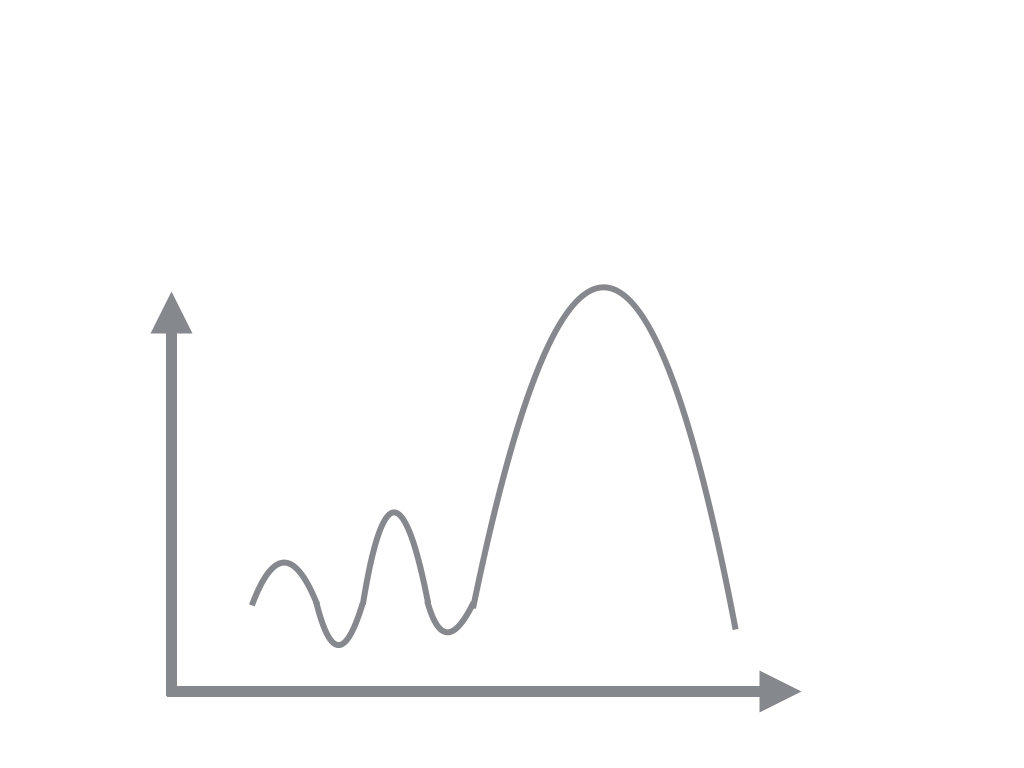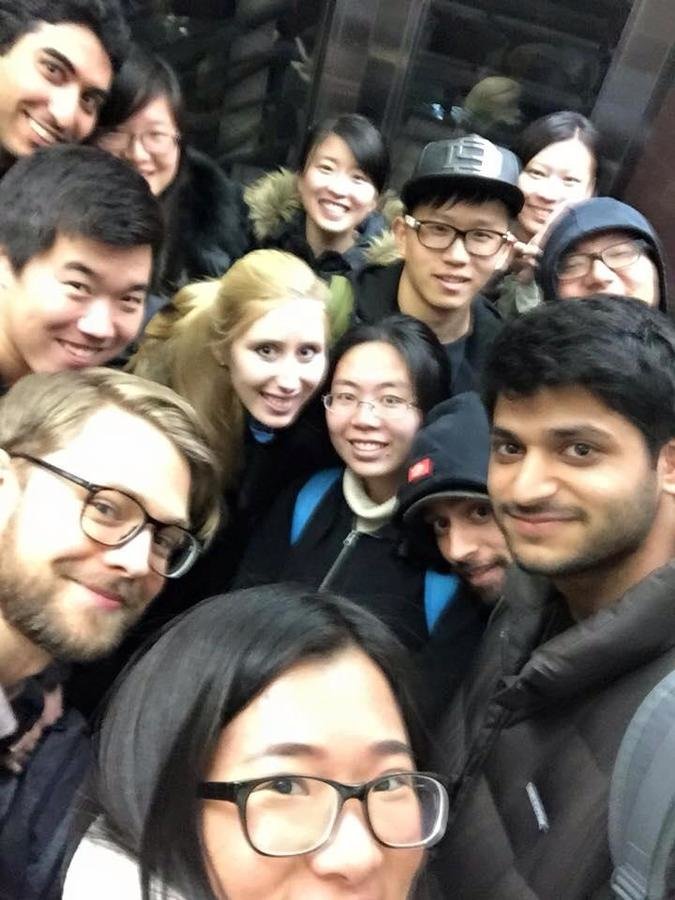Machine Learning
Frank Qiu




Chris Pang
Haider Shah
Stephanie Zhang




Intro
Algorithms
Business Value
Best Practices
The science of getting computers to act without being explicitly programmed.
-Stanford University CS 229 (Machine Learning)
What is Machine Learning?

Ng, A, 2015
The Restaurant Case
John
Jack used to come a lot. I wonder why he doesn't come any more.
Why is the other restaurant more popular?
Is Roy a slow server?

Vancouver's best selling beer
Average cost to run a restaurant
Transaction records related to Jack
......
Popular sauces
Popular restaurants
Query From Computer
Busiest hour of the week
Data Driven Decision
John
People like the happy hour in Bill's Bar so much that the keep going there even when it's not happy hour.
Roy is a great server, he sells more food, and that's why it seems like he is slow.
The Honey BBQ Rib is the best seller, and it has 10% chance of sold out during weekend. So get enough stock before weekend.
But,is that good enough?
Machine Can do it Again and Again.
MachineLearning.py
import os
import scipy as sp
import matplotlib.pyplot as plt
print("I'm MachineLearning") def ML(models, x, y):
if models:
if mx is None and x = 0
for x, y in zip(models):
# print "Model:",model
# print "Coeffs:",model.coeffs
plt.plot(model(x), c=color)
plt.legend(["d=%i" % m.order for m in models], loc="upper left") Python Hi, Python.

Top Restaurants
Other Restaurants
Factor 2
Factor 1
Machine Can do it Again and Again.
MachineLearning.py
import os
import scipy as sp
import matplotlib.pyplot as plt
print("I'm MachineLearning") def ML(models, x, y):
if models:
if mx is None and x = 0
for x, y in zip(models):
# print "Model:",model
# print "Coeffs:",model.coeffs
plt.plot(model(x), c=color)
plt.legend(["d=%i" % m.order for m in models], loc="upper left") Python Hi, Python.

Top Restaurants
Other Restaurants
Factor 4
Factor 3
Let the Machine Decide
MachineLearning.py
import os
import scipy as sp
import matplotlib.pyplot as plt
print("I'm MachineLearning") def ML(models, x, y):
if models:
if mx is None and x = 0
for x, y in zip(models):
# print "Model:",model
# print "Coeffs:",model.coeffs
plt.plot(model(x), c=color)
plt.legend(["d=%i" % m.order for m in models], loc="upper left") Python Hi, Python.

Factor 1
Factor 4
Factor 567
Factor 3294923
Factor 1412331232412
Factor 314235312431215
Factor 214321043214321431321
Factor 41890-234890231408923
Machine Is Better
KPI
View Span
John's View

Machine's View
Artificial Intelligence
Machine Learning
Data Mining


Machine Learning VS Data Mining
Machine learning is a science that involves development of self-learning algorithms. These algorithms are more generic in nature that it can be applied to various domain related problems
Data mining is a practice of applying algorithms (mostly Machine learning algorithms) with the data available from domain to solve domain related problems
Machine Learning Algorithms
Supervised Learning
Unsupervised Learning

Reinforced Learning
Supervised Learning

Algorithms are trained using labelled examples
Historical data predicts likely future events
Example : Credit Card Transactions
Unsupervised Learning

No Historical Labels
Goal is to explore data and find some structure within
Example : Customer Segmentation
Reinforced Learning

Learn by trial and error
Agent, Environment, Action
Example: Robotics, Gaming, Navigation
Summary

Supervised Learning
Mapping Inputs to Outputs
Unsupervised Learning
Clustering Data
Reinforced Learning
Maximize Rewards
Machine Learning
is
everywhere

Customized
Recommendation





Ranking
webpages



Face
Recognition




Handwriting
Recognition





Machine
Learning
Big Data
Can't
Program
by Hand
Beyond
Human
Capability
$48
billion
/year
Online Advertising
$11.5
/year
billion


Fraud detection systems



Gene prediction for cancer
nature disaster prediction
self-driving cars
...


ML Workflow: Best Practices
Historical Data
Model Building
Model Optimization
Model Evaluation
Answers
New Data
-
Clearly understand the business problem
-
Pair the best algorithm for the problem type
-
Employ data discipline
-
Consider scalability in production early
- Actively monitor performance metrics for model
Evans, J, 2014
SAS, Machine Learning, 2015
Wood, D, 2013

Available Software










Muenchen, R, 2015.
- Intuitive GUIs for building models and interactive data exploration and visualization
- Automated model evaluation to identify the best performers
- Easier model deployment so you can get repeatable, reliable results more quickly

Recent Software Improvements
SAS, Machine Learning, 2015.

Kaggle Competitions



Kaggle, All Competitions, 2015.
http://www.research.ibm.com/foiling-financial-fraud.shtml
http://www.eecs.tufts.edu/~dsculley/papers/ad-click-prediction.pdf
http://www.nytimes.com/2015/02/12/technology/personaltech/googles-time-at-the-top-may-be-nearing-its-end.html
http://www.quora.com/What-are-some-interesting-possible-applications-of-machine-learning
http://www.forbes.com/sites/85broads/2014/01/06/six-novel-machine-learning-applications/
http://www.wsj.com/articles/SB10001424052748703834604575365310813948080
Copy of Copy of Machine Learning - Mar 31 (Ver6)
By Frank Qiu
Copy of Copy of Machine Learning - Mar 31 (Ver6)
Machine Learning Presentation
- 1,386


